When we started our debt-free journey, we became laser-focused on budgeting and paying off debt.
As a stay-at-home mom, it was my job to save our family as much as possible so we could reach our financial goals.
I wore my frugality as a badge of honor (and still do!).
But, as we questioned every purchase and tightened our budget, some people started to associate us as cheap.
I used to think the two words, frugal and cheap, were interchangeable until being called cheap offended me…like BIG TIME! I had no idea I had felt like this about something so trivial!
So, I started wondering if there was a difference between being frugal vs cheap.
The answer is yes!
Although being frugal and cheap are both about saving money, the two words differ in how somebody thinks about money. It’s all about money mindset.
Related: 5 Secrets To Master Your Money Mindset
So let’s dive deeper into the difference between being a frugal rockstar and being a miserly cheapskate.
Disclaimer: This post may contain affiliate links. This means I receive a small commission, at no extra cost, if you purchase using the links below. Please see my earnings disclaimer for more details.
Table of Contents
The difference between frugal vs cheap
The key difference between cheap and frugal is the money mindset behind them.
Money Mindset is the belief and attitude we have about money. This mindset determines how we manage our money. Let’s take a closer look at the definitions.
Frugal Mindset
Someone with a frugal mindset is resourceful, economical, and can look past fast deals to their long-term goals.
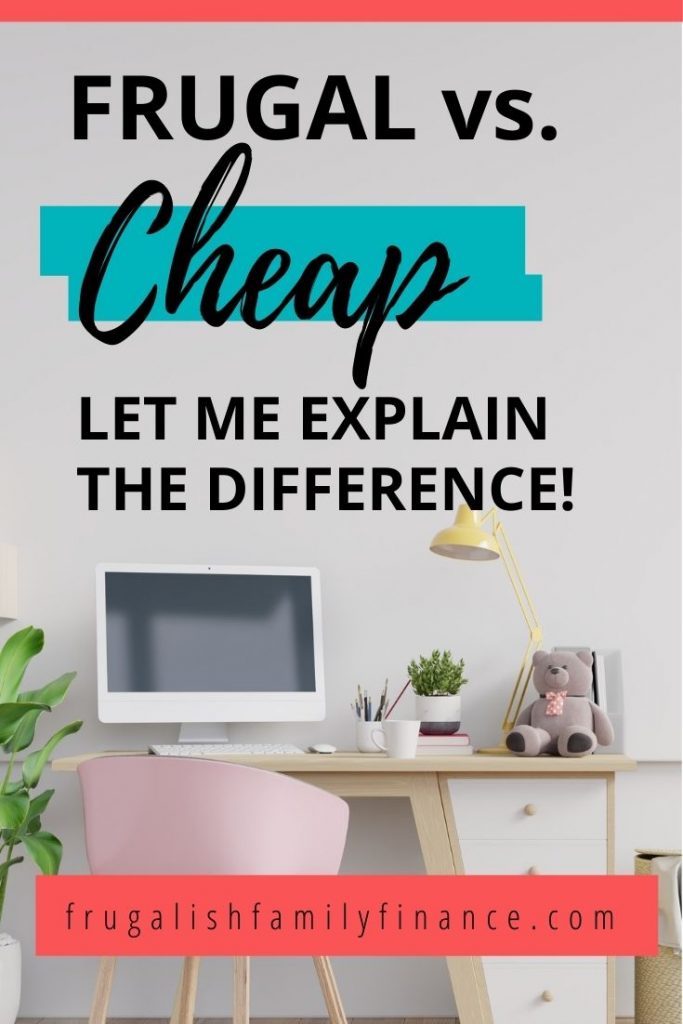
A thrifty person looks for ways to cut costs and save money to spend in other more important areas of their lives.
Frugal Sparing or economical with regard to money or food. Urban Dictionary
Cheap Mindset
On the flip side, someone with a cheap mindset chooses the lowest price every time, disregarding time, quality, or the feeling and needs of others.
Cheap An individual that goes beyond all reasonable means to save a buck. Urban Dictionary
As you can see above, a frugal mindset has a healthier relationship with money, whereas a cheap attitude can be toxic.
What does it mean if you are frugal?
Being frugal means a person is good at saving money, but most importantly, they spend money with intention. Here are some signs that someone is living a frugal lifestyle.
Frugal people live on a budget
Frugal people organize their finances with a budget. Knowing how much money is coming in and going out every month is key to saving money. They don’t spend money just willy-nilly. They plan their spending every month and stick to it by tracking their expenses.
But, frugal people aren’t afraid to spend money. They make have better spending habits, and make better financial decisions.
A perfect example is that a frugal person may live without cable and internet because they prefer to spend money on experiences like vacations or trips.
Frugal people choose quality over quantity
Buying the cheapest item is not always going to save you money. Frugal people like to get a great deal, but not at the expense of quality. They know how to think long-term, and prefer to spend more on high quality items.
How will the item or service hold up over time?
Frugal people look at buyer reviews and the quality of the product before they buy. They aren’t afraid to spend more if they get a longer life from that item. They look for the best value for their money.
For example, a person who lives a frugal life will spend a bit more on a pair of running sneakers because a higher quality pair of sneakers are better for their feet and will hold up to the mileage they run.
Frugal people are content
Frugal people are happy living simple and financially stress-free lives.
When you live with less, you want less as well.
Buying only what you need and what makes you happy leads to contentment and way less spending.
When Doug and I started living a more minimalistic lifestyle, it felt great to get rid of the clutter, but it also made us realize we could live with much less and be just as happy.
Related:
How to Minimize Your Life and Maximize Your Happiness
Frugal people are resourceful
Thrifty people use their resources to save money.
- They save for what they want before buying it. Most times, paying in cash gets you a better deal on an item or service.
- They buy good quality items second-hand.
- They reuse and repurpose things to use in other ways.
For example, you can repurpose old towels into cleaning rags. Cleaning rags can reduce the number of paper towels you use (which saves money).
What are the signs of a cheap person?
Now, let’s look at the qualities of a cheap person.
Cheap people value money over time
Cheap people will do whatever they can to save a buck, including wasting time!
They will drive long distances to save a couple of cents on gas without thinking about the time and gas they wasted to get there.
Not only that, another example is spending countless hours clipping coupons to save on stuff they don’t really need.
Don’t get me wrong, I am all about a coupon or a coupon code when it makes sense, but there is a definite line between frugal vs cheap.
Have you ever watched those extreme couponing shows?
These people spend countless hours clipping coupons and planning a strategy to buy 25 bottles of soda, 126 tic-tacs, 45 yogurts, and 36 bottles of handsoap, all for $8 or something.
They have no idea they are wasting so much time! Mostly on stuff they could do with less of or without all together. Who the hell needs a stockpile of tic-tacs anyway?!
Cheap people value a deal over the quality of an item
Because cheap people choose the cheapest option every time, they usually forgo quality because they are worried about the savings and the deal.
This leads to items and services that don’t last, which is usually more expensive in the long run.
Have you ever bought a shirt or jeans because the price tag was cheap, just to have it shrink or fall apart after the first wash?
We’ve all done it…sacrificed quality for the cheap price tag. But penny-pinching people do this every time!
Cheap people value money over people
Have you ever been out to lunch or dinner, and someone doesn’t want to leave a tip, or they’re just looking for a reason not to leave it? That right there is the ultimate Scrooge!
Cheap people value money over people. They are the ones that never want to drive, never pay for dinner, and abuse other people’s generosity.
They take advantage of every free thing offered even if they have the means to pay, which then doesn’t benefit the people it was supposed to.
What is wrong with being cheap
There is a cost of being cheap, and here are the biggest consequences…
It cost more
There is a reason certain items and services come with a cheap price tag. Usually, when an item is cheap, it’s made of lower quality items or shoddy workmanship.
This poor quality usually leads to replacing it earlier than you wanted, which makes it more expensive in the long run.
For example, a cheap person will buy the most inexpensive mattress they can find. A year or two later, when the mattress starts to sag (leading to lost sleep and back problems), they have no choice but to buy another.
If they had saved and purchased a quality mattress, it would have saved them money in the long term.
It leads to clutter
Cheap people take on all the free stuff (whether they need it or not), hate to throw away anything (even if it’s broke), and buy stuff just for the cheap deals (when they do spend money).
All of the above leads to CLUTTER!
And clutter has been proven to take a toll on your mental health, causing anxiety and depression.
It can lead to debt
In some cases, being cheap can cause a type of FOMO. Cheap people are afraid of missing those once-in-a-lifetime deals (which don’t actually exist).
This fear of missing a deal causes them to make bad spending decisions. There’s a good chance credit cards are used to buy the discounted stuff, which leads to credit card debt that can spiral out of control quickly.
For example, Black Friday deals happen once a year. This time of year seems to be when all the cheapos stand in line for the “best deal.”
Even if they don’t have the money, they are willing to accrue debt to get this once-a-year deal.
Related: How to Slay Your Debt Using the Debt Snowball
It can lead to lost relationships
The miserly ways of cheap people can put a wedge between them and their relationships.
Most times, cheap people want to lecture others about how they spend their money. Not to mention, they never want to do or spend anything.
People don’t want to bother with someone who is greedy…that’s just a fact!
Examples of a Cheapskate
You might be a cheapskate if…
- You jump at the opportunity for anything free-even if you don’t need it.
- You go out to eat but leave a crappy tip because you’re looking for a way to save.
- You buy clothes only to wear once and return them the next day.
- You buy a gift on clearance, remove the clearance sticker but leave the original price tag on so the person receiving the gift thinks you spent more than you did.
- You drive 15 minutes down the road to save a dollar or two on gas.
- You complain about the price of everything!
- You spend hours trying to find the cheapest deals on what you need.
- You buy the cheapest everything despite a bazillion negative reviews on Amazon for those items.
- You make saving money a competition with people who never asked to participate.
- You take handfuls of condiments from restaurants and use them to fill your empty condiment bottles at home.
How do I stop being a cheapskate?
Ok, so what if you identify more as a miser than a frugalist? There’s always time to change! Here are a couple of steps to take.
Acknowledge that you’re a cheapskate
The first step is to accept the fact that you’re cheap. Then, identify why you spend (or don’t spend) the way you do.
You may have had experiences that lead you to living a cheap lifestyle.
Budget to spend
Like I’ve said before, a budget gives you the freedom to spend…so spend it!
Set up a category for fun or something you want or need when you do your monthly budget, and then spend the money. Treat yourself or someone else!
Spend with intention
When you spend, make sure to do it with intention.
For example, say you need some new cookie sheets for baking. Do the research and find some good quality ones to buy.
You’ll save money in the long run because you’ll get a couple of years’ worth of baking from those cookie sheets versus a year with the cheaper ones.
Be generous
Cheap people are so worried about saving a buck that they don’t ever consider giving to someone in need.
Try to be generous and give away some of the money you save.
Monetary ways to give
- Tithe a percentage of your income to your church.
- Give a generous tip to a deserving waiter or waitress .
- Pick a charity to donate to.
Nonmonetary ways to give
- Volunteer to work at a soup kitchen.
- Give away old gently used clothing, furniture, or toys to someone who needs them.
- Help a family member or friend with a task.
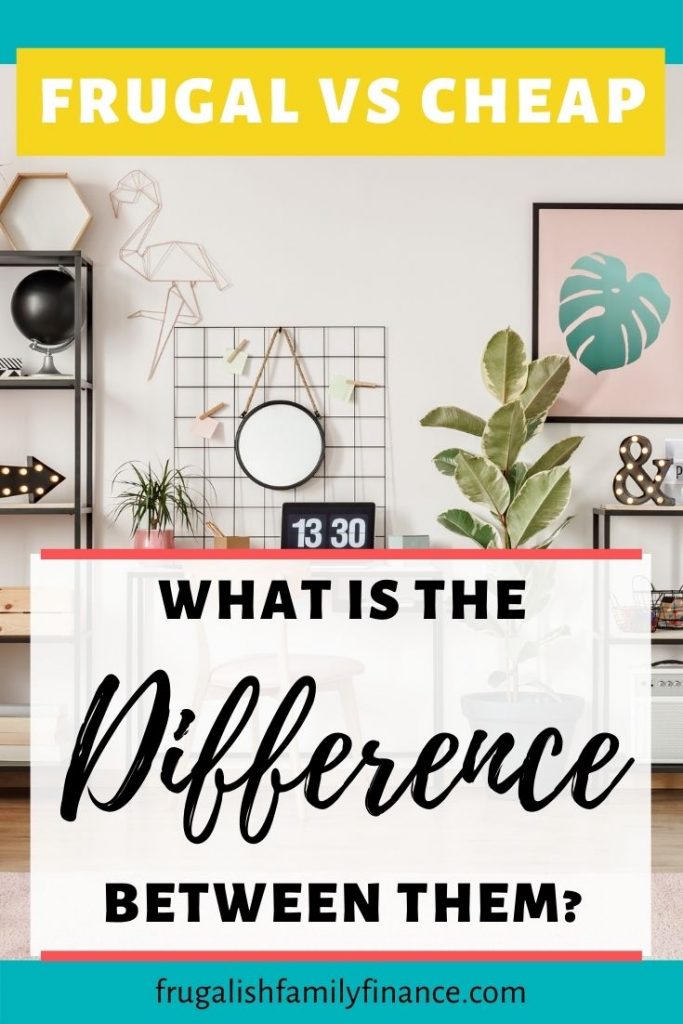
How to be frugal without being cheap
Here are some frugal tips that can save you money without being cheap.
Cook at home
Eating out is expensive! You can save money by cooking and eating at home.
If you’re craving a restaurant-quality meal, find one on Pinterest and make it yourself. You’ll save money and have leftovers!
Related:
46 Super Frugal Meals That Won’t Break The Bank
40 Damn Delicious Freezer Meals to Save Time and Money
Save for fun
Do you have a vacation coming up or want to plan something fun?
Set up a sinking fund to save a little money every month. Doing this ensures you will have the money to spend when it comes time to partake in fun!
Related:
Everything You Need To Know About Sinking Funds For Beginners
23 Sinking Fund Categories To Help You Budget Better
Buy Used
Buying second-hand is a great way to save money, but only when it makes sense.
Some great items to pick up used would be…
- cars
- furniture (cribs, bed frames, chairs, etc.)
- clothing
- electronics
- exercise equipment
- some home appliances
Look for a good deal
Keep your eye out for good bargains and the best time to buy the things you actually need.
For example, most grocery store ads are on a 6-week cycle. Knowing this will help you plan the best time to grocery shop for certain food items, like meats and canned goods.
Also, using cashback apps like Rakuten and Ibotta can help you save a good bit of money with your shopping.
Related:
How To Save Money On Groceries Without Using Coupons
13 Best PayPal Reward Apps To Earn Cashback On Your Shopping
12 Awesome Ibotta Tips And Tricks To Earn The Most Cash Back
Buy generic
Say goodbye to brand loyalty. Those brands don’t care about you, just your money!
Try generic or store brands instead of your usual brands. You may be surprised they taste very similar or even better!
For example, when I grocery shop, I buy mostly Great Value (Walmart) brand. It saves me a lot of money doing this.
Meal plan
Make a weekly or monthly meal plan using what you have on hand.
Therefore, check your refrigerator, freezer, and pantry to create your meals. If you’re missing something from the recipe, then add that to the grocery list.
Meal planning and creating my grocery list this way helps to keep my grocery budget under control.
Related:
The Art of Meal Planning for Busy Moms (And Dads)
Borrow what you need
Borrowing is a great way to save money, especially if you only have a use for the item once or twice.
Here are a couple of things that may be smart to borrow are…
- tools from family or friend
- books from the library
- truck for moving items
Be prepared for the unexpected
Having an emergency fund for things like unexpected car repairs, new AC, or even a lost job relieves the burden that could be a huge financial stressor.
Save a 3-6 month emergency fund so you’re not caught off guard when an emergency happens (because it will!).
Budget
Start making a plan for your money. You can use good old fashion pencil and paper, a spreadsheet, or an app like EveryDollar.
Not only will a budget help you organize your finances and save money, but it gives you the freedom to spend how you see fit. But, make sure you track your spending to stay on budget.
Related:
How To Use EveryDollar App To Better Manage Your Money
How To Create A Zero-Based Budget To Simplify Your Finances
12 Important Reasons And Benefits Of Tracking Your Expenses
Is frugal an insult?
Absolutely not!
It means you prioritize your spending to reach the financial goals you set.
Whether those goals are paying off debt, saving for an emergency fund, or buying new living room furniture; being mindful with your money will help you get there!
My final thoughts about the frugal vs cheap debate
When you look at the difference between being frugal and cheap, there is kind of a big difference between the two.
Both mindsets love to save money, but a cheap mentality sacrifices quality, time, and other people. In contrast, a frugal mindset tends to be more generous, economical, and resourceful.
Being frugal helps you save money and build wealth, whereas being cheap costs you more money, clutter, and relationships.
If you’re leaning on the side of being cheap, take action by acknowledging it, spending your money intentionally, and being generous.
And if you’re ever called frugal, don’t take offense. Take pride in knowing you’re intentional with your money and on track to reaching your financial goals.
Are you proud to be frugal? Leave a comment below on your favorite frugal way to save!
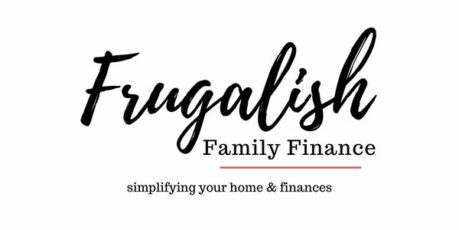
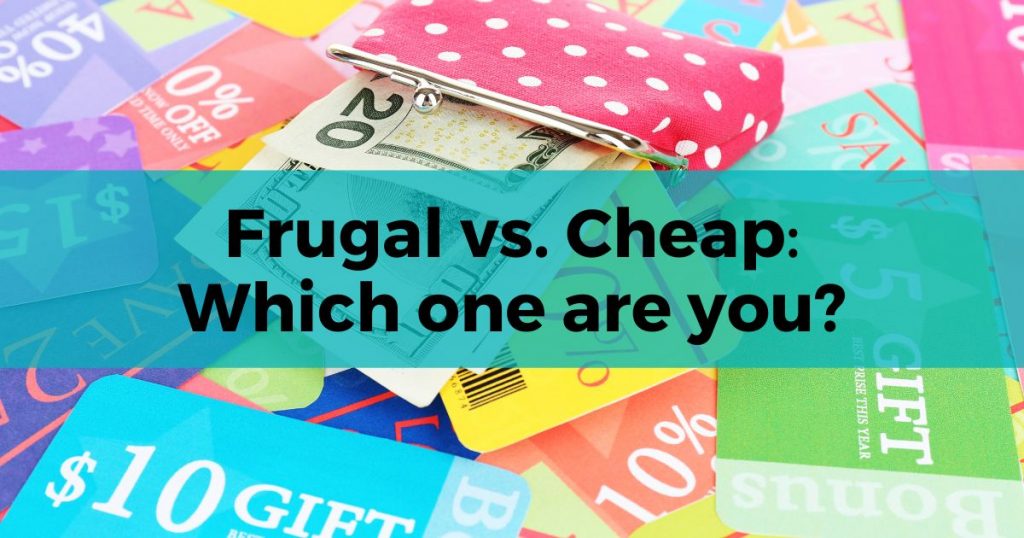
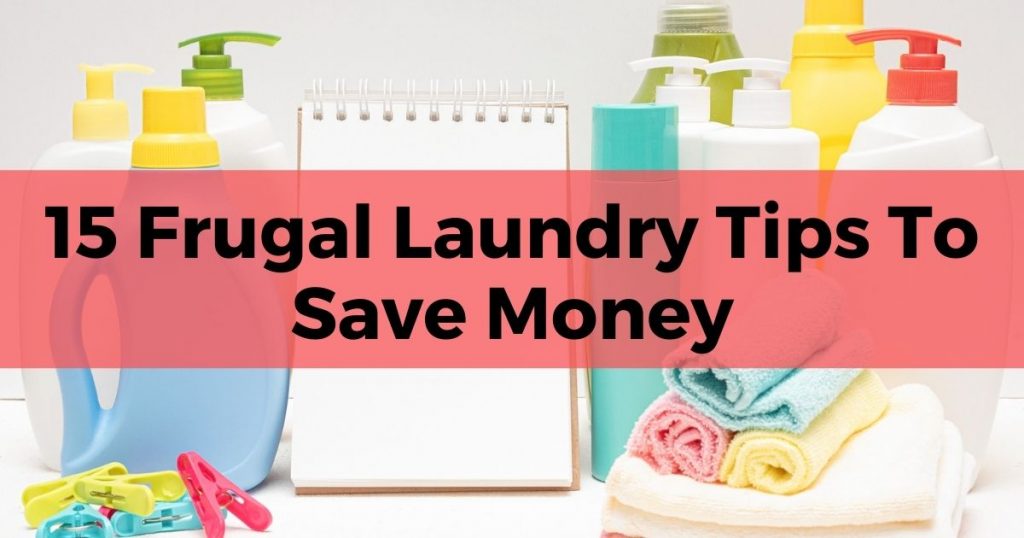
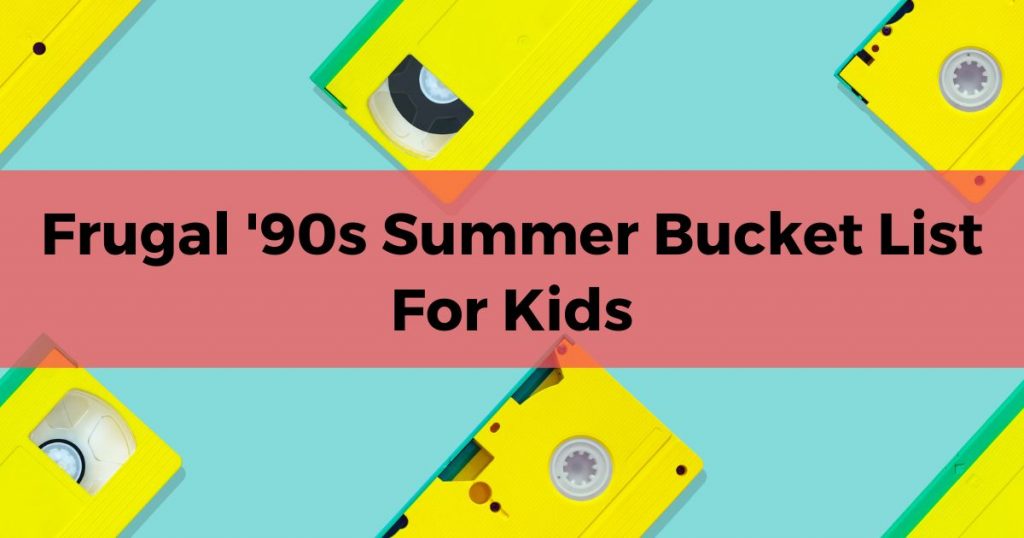
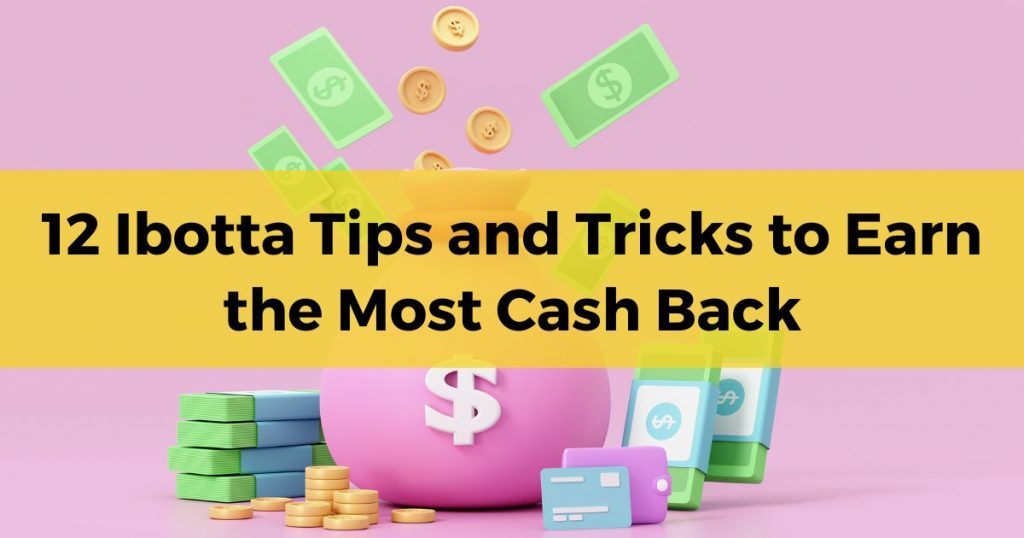
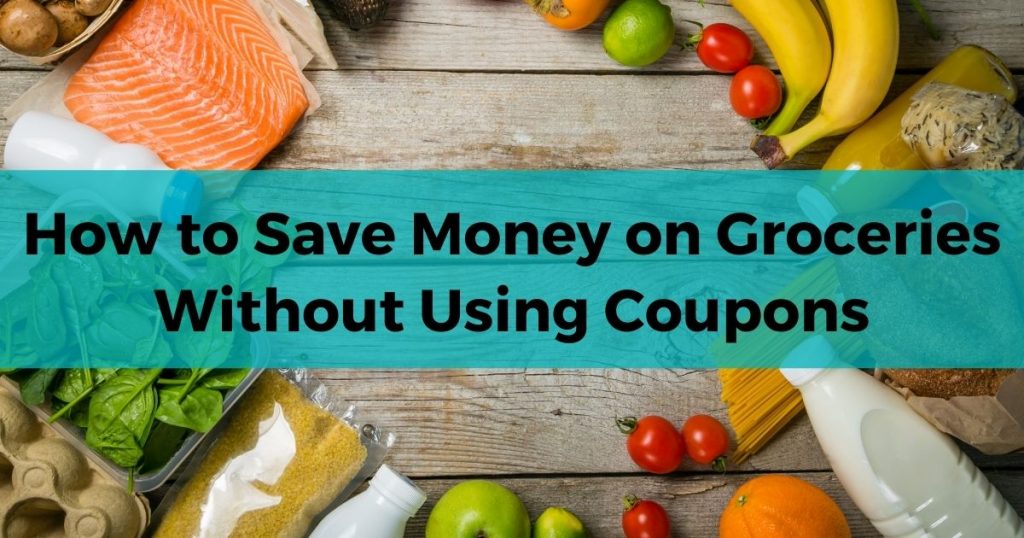
Love the article!
I love the concept of buying used and repurposing things!
Thanks! You know I love thrifting (I think I get it from you)!